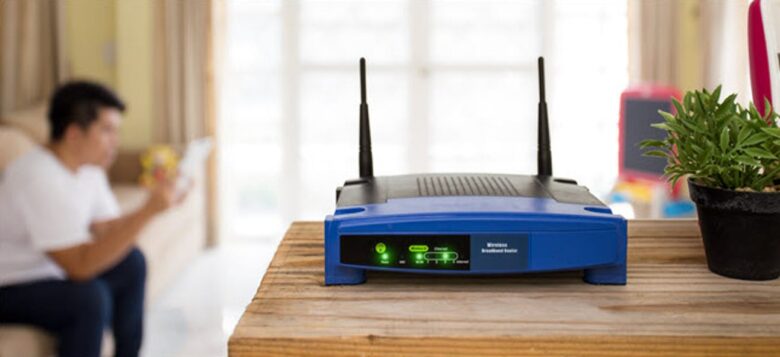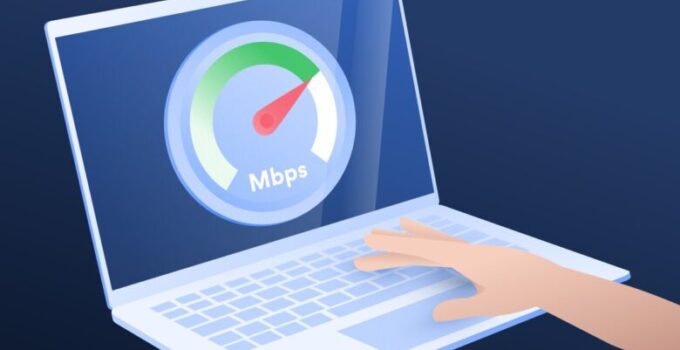It can be very irritating when you have consistently slow internet speeds. We all want to be able to have a consistent and fast internet, and there are actually a lot of good solutions that are worth trying. Unfortunately, some solutions might not work for you; they might be too expensive to try; and sometimes fake info starts circulating, which is of no use to anyone.
If you want to find the top tips for improving your internet speeds, take a look at the checklist below. This is advice that you can trust, and would be able to confirm with any tech professional. For instance, one organisation we spoke to – an IT support company in London, called TechQuarters – was able to corroborate the advice we have published. According to TechQuarters, these are the most reliable steps to take if you want to try to improve your internet speeds.
Check Your Data Cap
The first thing you should consider is whether your data cap is the culprit of your slow, unreliable internet. Most Internet Service Providers don’t publicly advertise their data caps – it would probably be quite bad publicity for some – but you will find that a large majority of providers do place caps on their plans.
These caps can range from a few hundred MBs per month, up to several hundred GBs per month. Exceeding that cap will result in data throttling, and your internet may become glacial.
Contacting your service provider, or looking at a bill for your internet is the best way to find out if you have a data cap, and how much that cap is. It may be that your only solution is to upgrade to a plan with a higher data cap.
Reset Your Router
Sometimes the reason that internet connection and speeds become sluggish is because your Wi-Fi router hasn’t been reset for a while. Your router is just a machine, and while we often assume subconsciously that machines are infallible, they are just as prone to losing efficacy and becoming ‘tired’ just like we humans – we need to sleep every night, which is a kind of reset for us.
Resetting your router means that your router can boot up from scratch, which will help it run at optimal levels. If your router has been plugging away at its job for weeks, or even months, without being restarted, then it is doubtful that it’s operating at optimal levels. Some people even opt for restarting their router every day, using an outlet timer to schedule a power off/on every night.
Move Your Router

- Source: howtogeek.com
The answer to slow speeds could be as simple as moving your Wi-Fi router. Are you predominantly using internet in your living room, but your Wi-Fi router is in the bedroom or hallway?
Generally speaking, you want to have your router as close to the device that are connecting to the internet as possible. Sometimes Wi-Fi signal can be lessened if it has to travel through brick, mortar, and other materials in your house. Make it as easy as possible for the signal to reach your device.
Use an Ethernet Cable
If you want to make it really easy for your device to connect to your Wi-Fi, why take any chances with wireless signal? Use an ethernet cable and connect your device directly to your router. We know that Wi-Fi is the most common – and the most convenient – form of personal network used today, but they aren’t always very fast.
A wired connection will always be faster and more reliable than a signal-based connection, because its travelling directly through copper and into your device, rather than travelling through the air for your device to hopefully pick up the signal.
Some internet service providers, like WOW, offer mesh wifi, in which several routers act as a single network making for a seamless connection throughout all rooms in the house.
Use an Ad Blocker
Those pesky ads you see on every single webpage of the internet might actually be responsible for slowing down your internet slightly. Whether the ads are just an image, or a Gif, or an auto-playing video that pops up on a webpage, they all require bandwidth to play – bandwidth that you’re paying for. Pretty frustrating, right?
Luckily, plenty of software exists to block those ads entirely. An Ad Blocker allows you to browse the internet as if there are no adverts on it whatsoever. Not only is this a very refreshing way to browse, it also cuts out a portion of bandwidth that’s being taken away from your connection.
Use a Lightweight Browser
Keeping a webpage open in a tab is data that your internet connection needs to allocate; and it is very common for people to have dozens (in some cases, even hundreds) of tabs open in a single window of their web browser.
It may be something you hardly think about, but it could be contributing to a large chunk of data being taken up. This is why using a lightweight browser is a good idea. For example, browsers like Opera can help streamline the data on a web page – which will mean your internet connection is less laboured.
Install an Antivirus & Malware Scanner

- Source: geekflare.com
This is something that you should be doing anyway. If you don’t have an antivirus and malware scanning application installed on your PC, you should definitely get one installed as soon as possible. A lot of malware and antiviruses are designed to slow down your PC, and some specifically slow down your internet speeds.
When you have a good security software installed, you should schedule it to scan for malware and viruses regularly – for instance, every week, or even every day if you use the internet a lot. If you happen to have a virus on your PC, the software might be able to remove it for you – otherwise, seek out an IT professional to help you remove it.
Use a ‘Clear Cache’ Plugin
Have you ever noticed that you see the same advert on multiple websites on the internet? The reason this happens is cookies and trackers on websites and web browsers. These trackers save a cache of data based on your web traffic, and these are used by marketers and advertisers to try and sell you things.
These caches are usually small, but you don’t notice them, which means they can accumulate over time until the amount of data that is caches on your browser could actually be slowing down your internet. You can always clear your own caches – all web browser provide you with this option. But we all forget to do this kinds of things sometimes; so to ensure that your caches are always being cleared, you can installed a plugin that does it for you.
Use a VPN
A Virtual Private Network is a network of servers that you connect to with your device. The primary goal of these services are to hide your IP address from other sites and users, thus offering privacy and security in a range of situations.
But another good thing that VPNs can do is circumvent data throttling on your connection that gets applied by your internet service provider. This means you could potentially achieve much better internet speeds by using a VPN. Always opt for a paid VPN service – the free ones generally do nothing for you.




